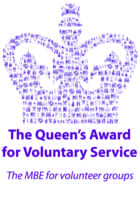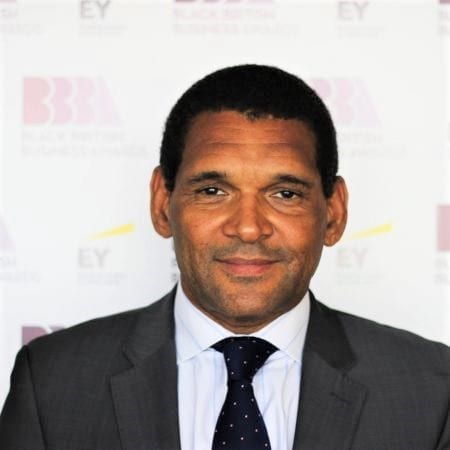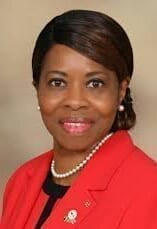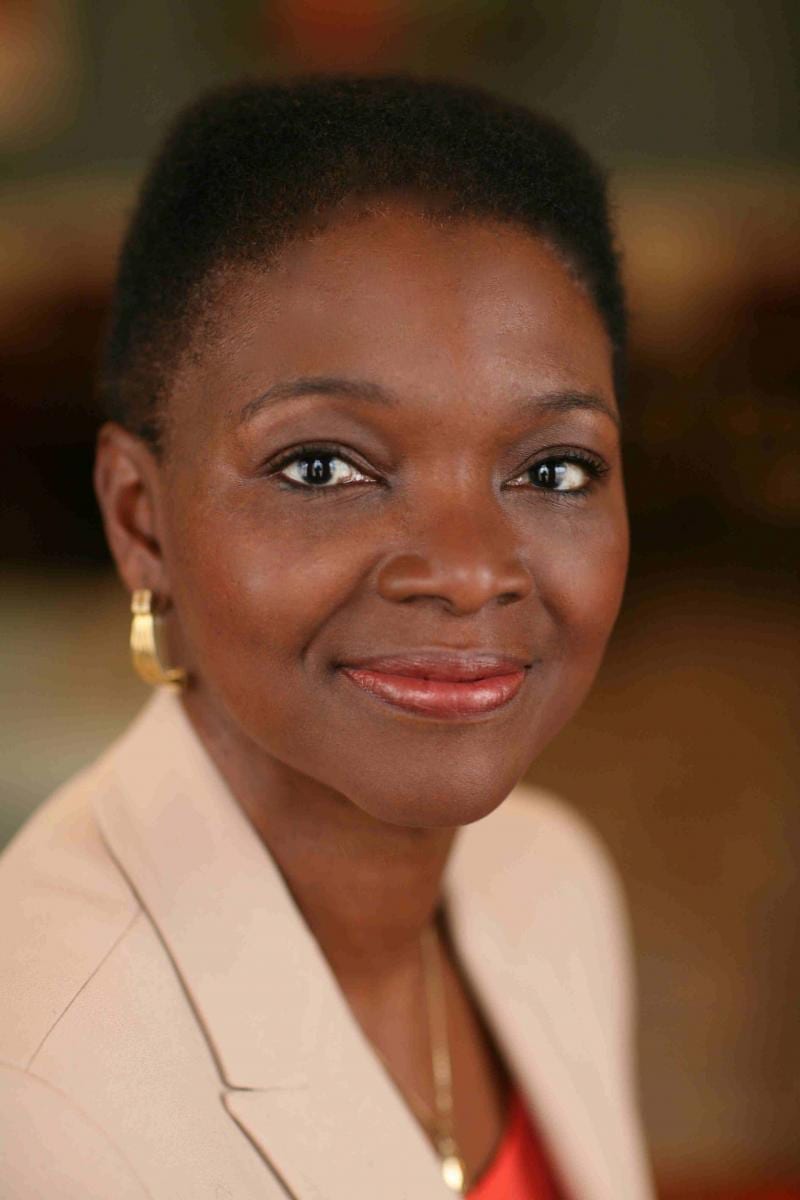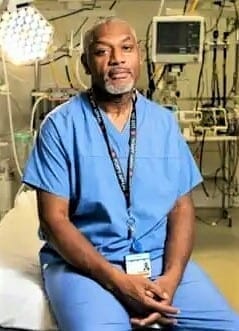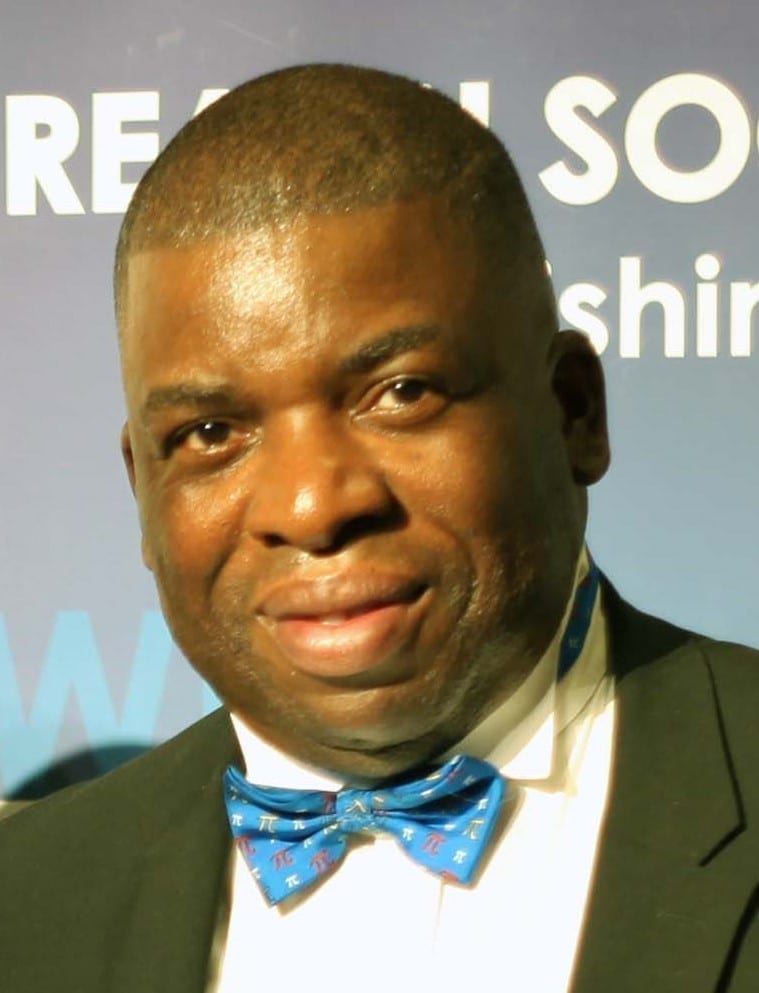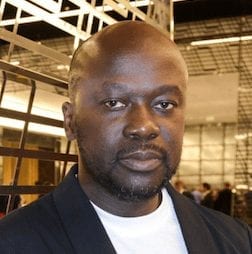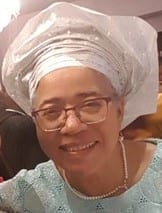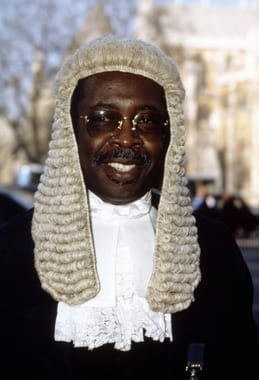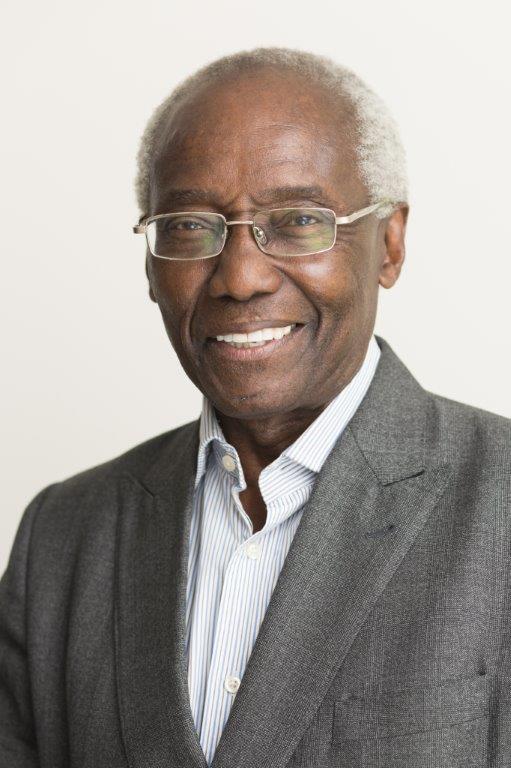David has led £multi-billion infrastructure and technology programmes in the UK and internationally, across both the private and public sectors. His expertise spans rail, water supply, commercial buildings, highways and power, gained at executive director and Board level.
Born in London, David went to secondary school in Gloucester and obtained degrees in engineering from Coventry and Imperial College then initially taught Mathematics in east London before working on transportation and water supply projects across UK and West Africa.
Thereafter he was recruited as Project Manager for the Docklands Light Railway which introduced him to high-technology train control systems and was then asked to join the Jubilee Line Extension where he led delivery and integration of the programme into operation in time for the politically critical millennium celebrations.
In 2003 he held the position in Government as an executive Director of the Strategic Rail Authority leading £3.5Billion cross-industry programmes and was the UK representative on the European Rail Agency, as well as being a non-executive director (or NED) of the Rail Safety and Standards Board.
For eleven years, from 2005, he was at London Underground firstly as Director of Engineering then Capital Programmes, leading delivery into operation of the £10Billion tube upgrade plan (at that time the largest in the tube’s history) through a variety of public private partnerships (or PPP) and in-house arrangements.
His most recent executive position, from 2016 to19, was Managing Director of the UK’s Digital Railway, leading the rail industry parties on the multi £Billion replacement of analogue technology with digital systems. In 2019 David retired and moved into non- executive roles. He currently sits as a NED on the boards of Thames Water and HPC.
His professional memberships and awards include the following: Chartered Engineer; Fellow of the Royal Academy of Engineering; Fellow of the Institution of Civil Engineers; Fellow of the Institution of Railway Signal Engineers; Hon Fellow of the Association for Project Management; and Fellowship to the City and Guilds Institute; UK Project Manager of the Year (1996); President of the International Organisation of Metro Railways (2007); a national honour the CBE (2014); Leader of the Year in the Manufacturing and Infrastructure section of the Black British Business Awards (2014); President of the Association for Project Management (2015-19); and listed in the 100 most influential BAME leaders in tech, as featured in the Financial Times (2019).
Beverly Lindsay was born in St Thomas, Jamaica and came to Birmingham as a teenager to complete her secondary education. She started a career in nursing and midwifery and then moved on to work as a senior community officer in Handsworth, and also in the financial services industry before founding a travel agency in 1987.
Lindsay, became a deputy lieutenant (or DL) November 2013, and four years later was appointed to the post of Vice Lord-Lieutenant (VLL) in July 2017.
Lindsay said: "I am humbled and overwhelmed to be appointed as the Vice Lord- Lieutenant of the West Midlands. To be even considered for this role ranks as a milestone in my professional and community engagement life. It is an honour that I embrace on behalf of the community and my family.”
Lindsay lives in Birmingham and is a long-standing member of the New Testament Church of God (or NTCG). She became a member of The Rotary Club of Birmingham in 1997; and she was named a ‘Paul Harris Fellow’, the highest award by The Rotary Foundation of Rotary International in 2009. She served as its president in 2012/13.
Lindsay is the founder and general manager of Diamond Travel, one of Birmingham’s leading independent travel agencies established more than 30 years ago. She is also a member of Birmingham Chamber of Commerce.
In 2008, Lindsay was awarded a national honour, the Order of Distinction (OD) by the Jamaican government; and in 2009 she became a trustee of the Association of Jamaican Nationals (Birmingham) UK.
In 2011, she was awarded the Order of the British Empire (OBE) for “services to business and to the community in Birmingham.”
On 20 July 2017, Lindsay was awarded an Honorary Doctorate of Letters from Aston University for her community work and business success as the CEO of Diamond Travel; and a week later Birmingham City University's (BCU) honoured her with an Honorary Doctorate for her earlier career in nursing and midwifery, her work within the travel industry and her longstanding community involvement.
Valerie Ann Amos was born March 1954 in Guyana, South America. She is a British politician and diplomat who served as the 8th UN Under-Secretary-General for Humanitarian Affairs and Emergency Relief Coordinator. Before her appointment to the UN, Amos served as British High Commissioner to Australia. She was created a Labour Life Peer in 1997, as Baroness Amos of Brondesbury in the London Borough of Brent. She also became Leader of the House of Lords and Lord President of the Council.
When Amos was appointed Secretary of State for International Development in May 2003, she became the first Black woman to sit in the Cabinet of the UK. In July 2010 Secretary-General of the United Nations Ban Ki-moon announced Baroness Amos's appointment to the role of Under-Secretary-General for Humanitarian Affairs and Emergency Relief Coordinator. She took up the position in September 2010 and remained in post for roughly 5 years. In September 2015 Amos was appointed Director of SOAS, University of London, becoming the first Black woman of Caribbean background to lead a university in the UK.
In the summer of 2019 Amos was appointed the new Master of University College in Oxford. She will take up the post in August 2020, following Sir Ivor Crewe’s retirement after 12 years in the role. Baroness Amos will be the first female Master of University College and the first Black person to head an Oxford College.
In 1976 Amos completed a degree in Sociology at the University of Warwick and also later took courses in cultural studies at the University of Birmingham and the University of East Anglia. After working in Equal Opportunities, Training and Management Services in local government in the London boroughs of Lambeth, Camden and Hackney, Amos served for roughly 5 years as Chief Executive of the Equal Opportunities Commission from 1989.
In 1995 Amos co-founded Amos Fraser Bernard and was an adviser to the South African government on public service reform, human rights and employment equity. Amos has also been Deputy Chair of the Runnymede Trust, from 1990 to 1998; a Trustee of the Institute for Public Policy Research; a non-executive Director of the University College London Hospitals Trust; a Trustee of Voluntary Services Overseas; Chair of the Afiya Trust; Member of the board of the Sierra Leone Titanium Resources Group; a director of Hampstead Theatre; and Chair of the Board of Governors of the Royal College of Nursing Institute.
Amos is currently a board member of the MasterCard Foundation; the United Nations Foundation; the Mo Ibrahim Foundation; the Whitaker Peace and Development Initiative; the Institute for Government; and Universities UK. She is also a trustee of the Grenfell Foundation and patron of the Amos Bursary.
Born in South-east London to Jamaican parents, Martin is a consultant vascular and trauma surgeon at Barts Health NHS Trust where he is the Lead for Trauma Surgery, Educational Lead for Surgery, and the Trauma Network lead for violence reduction.
He trained at the Medical School of St Bartholomew’s Hospital where he graduated with a distinction in Surgery. He has lived and worked in London most of his life.
He teaches undergraduate medical students at Barts & Brighton medical schools and teaches on the faculty of numerous courses at the Royal College of Surgeons of England.
He is a passionate advocate of diversity and equality has worked in the community to promote this for over 15 years. He was recently appointed as the first Ambassador to the Mary Seacole Trust. This charity celebrates the life and achievements of Mary Seacole, a Jamaican born nurse who treated troops in the Crimean War, and promotes her as a role model, tackling social challenges and inequality with a focus on youth engagement and the promotion of good citizenship.
He has been working with schools for more than 20 years to reduce gun and knife violence and was recently appointed to the Violent Crime Prevention Board, under the leadership of Dr Neville Lawrence. The VCP Board seek to challenge the attitudes around interpersonal injury in London.
He set up the first in country integrated ward-based violence reduction service at Barts Health supporting the victims of knife and gun injury, which has had spectacular success in reducing retaliation and violent reoffending in this group of vulnerable young people.
He was awarded the Hero Doctor Award at the recent NHS Heroes Awards, for his role in caring for people injured in the 2017 London Bridge terror attack. He was named by the Evening Standard as one of the 1000 Most Influential Londoners, and gave the keynote address at the NHS70 celebration at Westminster Abbey in 2018.
In 2019 he became a Deputy Lieutenant (or DL) of Greater London serving with Sir Kenneth Olisa, Lord Lieutenant of Greater London.
Lewis Hamilton, MBE was born July 1985 in Stevenage, Hertfordshire, England to a father born in Grenada and white mother born in England. Hamilton is a British racing driver who races in Formula One (or F1) for the Mercedes AMG Petronas team. A six-time F1 World Champion, the most for any British driver, Hamilton is considered to be the best driver of his generation, and widely regarded as one of the greatest F1 drivers in the history of the sport.
Hamilton won his first World Championship title with McLaren in 2008, then moved to Mercedes where he won back-to-back titles in 2014 and 2015 before winning 3 more titles in 2017, 2018 and 2019 making him one of the most successful F1 drivers of all time.
Statistically the most successful British driver in the history of the sport, Hamilton has more race victories than any other British driver in F1, and holds records for the all-time most career points, the most wins at different circuits, the all-time most pole positions and the most grand slams in a season.
Hamilton is the first and only Black driver to race in F1. In his first season he set numerous records as he finished runner-up in the 2007 F1 Championship to Kimi Räikkönen, by just one point. He set records for the most consecutive podium finishes from debut (9), the joint most wins in a debut season (4) and the most points in a debut season (109).
In his second season Hamilton won his first F1 World Championship in dramatic fashion; on the last corner of the last lap in the last race of the season, becoming the then-youngest Formula One World Champion in history. After four more years with McLaren Hamilton signed with Mercedes AMG Petronas for the 2013 season when he finished 4th once again, the third time in five years. His next 6 years with Mercedes were simply historic. He won his sixth F1 World Championship in 2019 which puts him just one fewer than Michael Schumacher.
Dr Nira Chamberlain is a professional mathematician who is listed by the Powerlist 2018 as the 5th most influential person in the UK’s Black community.
He is listed by the Science Council as “one of the UK’s top 100 Scientist” and in 2015 joined the elite list of distinguish mathematicians who featured in the biographical reference book Who’s Who, becoming the first Black mathematician to do so since 1849.
He is the Vice President, of Professional Affairs and Industry, of the Institute of Mathematics and Application (IMA) and is a Visiting Fellow of Loughborough University’s Mathematical Sciences Department. He is one of the few British Mathematicians to feature in the Encyclopedia of Mathematics & Society for two of his industrial mathematical models.
He has over 25 years of experience of writing mathematical models and simulation algorithms that solve complex industrial and engineering problems. He developed mathematical solutions within industrial sectors such as defence, aerospace, automotive and energy. He has worked in France, the Netherlands, Germany and Israel.
During his career he has chaired and organized a mini-symposium at an international mathematical modelling conference. He has been invited to speak at a number of prestigious conferences such as the New Scientist's Instant Expert: The Mathematical World and the London International Science Youth Forum.
He is the author of the paper - Long multiplication and percentages without a calculator - which is based on a method he invented, while teaching at an Inner-city Saturday school. As part of the National Higher Education STEM Programme project he recorded a video of his career – Being a Professional Mathematician - for use as resource material for the undergraduate mathematics curriculum.
He supports a number of charities most notably of which are: Speakers for Schools, Target Oxbridge and Reach Society.
Sir David Adjaye OBE is recognized as a leading architect of his generation. Adjaye was born in Tanzania to Ghanaian parents.
In 1994, he set up his first office and established himself as an architect with an artist’s sensibility and vision. He reformed his studio as Adjaye Associates in 2000 and now has offices in London, New York and Accra with projects in the US, UK, Europe, Africa, Asia and the Middle East.
His largest project to date, the $540 million Smithsonian Institute National Museum of African American History and Culture, opened on the National Mall in Washington DC in fall of 2016 and was named Cultural Event of the Year by the New York Times.
Other prominent completed work include the Idea Stores in London (2005), the Moscow School of Management SKOLKOVO (2010), the Sugar Hill mixed-use social housing scheme in Harlem, New York (2015); and the Aishti Foundation retail and art complex in Beirut (2015).
In 2017, Adjaye was knighted by Her Majesty the Queen for services to Architecture, was awarded an OBE in 2007, and was recognized as one of the 100 most influential people of the year by TIME magazine. He has received the Design Miami/ Artist of the Year title in 2011, the Wall Street Journal Innovator Award in 2013 and the 2016 Panerai London Design Medal from the London Design Festival.
Adjaye has held distinguished professorships at the Harvard, Princeton and Yale universities. He has also taught at the Royal College of Art, where he had previously studied, and at the Architectural Association School in London.
Born in Birmingham in 1947, Elizabeth identifies as of Irish/Nigerian heritage and started work for the NHS as a school nurse assistant in Wolverhampton at the age of 16. She was inspired to become a nurse at age four because a wonderful nursing nun treated her childhood eczema in an expert and sensitive manner.
Elizabeth put a substantial amount of her life into her work as a nurse, health visitor and tutor working with black and minority ethnic communities in London. “People from diverse cultures are not always valued and still sometimes just seen as problems,” she says. In 1979, she helped to establish in the London borough of Brent the first UK Sickle & Thalassemia Screening and Counselling Centre.
Elizabeth was honoured with a Damehood (DBE) in the 2017 Queen’s New Year’s Honours List for her services to nursing and the Mary Seacole Statue Appeal. The Queen’s Nursing Institute awarded her a Fellowship (FQNI) in October 2017. In 2001 she was awarded a CBE for services to nursing. In 2004 she was presented with the Royal College of Nursing Fellowship (FRCN) for her work in the development of nurse-led sickle cell and thalassemia counselling services and education and leadership in transcultural nursing. She is a Patron of the Sickle Cell Society as well as the Sickle and Thalassemia Association of Nurses, Midwives & Associated Professionals (STANMAP).
In 1999 she became Head of the Mary Seacole Centre for Nursing Practice at the University of West London until her retirement in 2007. The university honoured her with the award of Emeritus Professor of Nursing.
Elizabeth was vice-chairperson of the Mary Seacole Memorial Statue Appeal from its launch in November 2003. The statue was unveiled in the grounds of London’s St Thomas’ Hospital in June 2016. She is now a Life Patron of the charity, the Mary Seacole Trust.
The former High Court judge is believed to be the first person of African ancestry to be made a Queen’s Counsel (or QC) in England and Wales.
Dr Roberts CBE, QC was a man credited with many firsts, the most notable being the first person of African ancestry to be appointed by the British Government to serve as a High Court judge of the Supreme Courts of the British Virgin Islands, and Anguilla, British West Indies in 1992.
Born in Sierra Leone on 17 May 1928, he was a keen pianist, organist, guitarist and choir singer, who was passionate about helping people. So eager was he to serve his people that he is reputed to have been the first head of Chambers to allegedly accept seven female barristers all at once, unheard of in 1975.
Many regarded him as a modest humble man who refused to push himself forward. However many are of the view it was this attitude coupled with his unparalleled self-belief that enabled him to achieve the distinction of being the first person of African ancestry to become the Head of his Chambers in England and Wales.
His Chambers at 2 Stone Buildings was fully representative, mixed and diverse with Asian, white and African and Caribbean members. He jocularly remarked at a special event held in his honour at the House of Commons in 2007 that at one point there were more white staff than ethnic minority on his team.
Dr Roberts is the great grandson of the first President of Liberia, Joseph Jenkins Roberts. In his earlier life he was an RAF pilot with accounting qualifications. He was posted to Europe, the Near East, the Far East and the South Pacific as part of his RAF duties until 1962. When not on duty he was an avid boxer and sprinter. Immediately after his service in the RAF, he was invited to serve in the Sierra Leone Civil Aviation Service by the Prime Minister of Sierra Leone, where he worked in the Air Traffic Control Services Department until 1964.
Following his marriage in 1961 to a Jamaican nurse, the couple had a son before they returned to the UK where he worked as a Civil Servant between 1964 and 1969. During this time he read law part time at the Inns of Court School of Law, affirming his love for helping people. He was called to the Bar (Gray’s Inn) in 1969, becoming a Master of the Bench in 1996. In 1972 he became a Member of Lincoln’s Inn.
In addition to the English Bar, Dr Roberts may have set a record by being called to the Bars of ten other countries, namely: Jamaica (1973), Sierra Leone (1975), Trinidad & Tobago (1978), Bahamas (1984), St Kitts & Nevis (1988), Antigua (2002), Barbados (2002), Bermuda (2003), Anguilla (2006) and Grenada (2007).
In recognising his many accomplishments, he has not only distinguished himself as a legal giant, but he has made the African Caribbean community extremely proud by being the first person of African ancestry to be made a Recorder of the Crown Court in England and Wales.
Dr Roberts, in keeping with his desire to empower his people, accepted the role of Bencher of the Council of Legal Education in Sierra Leone in 1990; and tutored on Advocacy for a period between 1990 and 1992 at the Inns of Court School of Law in London.
As a means of remaining active Dr Roberts served as a former President of the British West Indian Ex-Servicemen and Ex-Service Women’s Association along with serving as a former joint President of the British Caribbean Association UK.
Other accolades accorded to him include being made an Honorary Citizen of Atlanta, Georgia, USA in 1991; a Freeman of the City of London in 1996; an Honorary Citizen of the British Virgin Islands in 2000; and then receiving an Honorary Doctorate from City University in 1996. He also served as a fellow of the Chartered Institute of Arbitrators and sat as an arbitrator and a door tenant at Warwick Court Chambers for some years.
Arguably his crowning achievement was being awarded a Commander of the British Empire (or CBE) in the New Year’s Honours in 2011. Dr Roberts received this award for the Administration of Justice, Diversity and Equal Opportunities.
Sir Godfrey, also known as Geoff, is Professor Emeritus in the School of Life Sciences at Heriot-Watt University in Edinburgh, Scotland. He was born in St. Elizabeth, Jamaica but grew up in Allman Town, Kingston before migrating to London to join his mother at the age of 14 to help her by working in a local grocery shop in Islington in 1955. However, he was not allowed to work because he was below the school-leaving age of 15 years. Overcoming early educational challenges of being assessed as “educationally subnormal” at school in London, and despite other difficulties, he completed school at Highbury County, London in 1958. He excelled at cricket as a member of the prestigious London School Boys’ Cricket team, having learnt his cricketing skills at Race Course, Kingston, Jamaica. After leaving school in 1958, Sir Godfrey secured a job at Queen Elizabeth College as a junior technician.
Godfrey’s employer, Professor Garth Chapman, who was instrumental in changing Sir Godfrey name, from Godfrey to Geoff, helped him to get a place at Leicester University because, although fully qualitied, he was rejected by the Universities he had applied to enter in 1961. He went on to earn an honours degree in botany in 1964 from Leicester University. After completing his degree at Leicester University Sir Geoff returned to Haringey, London to secure a job.
However, the only suitable job offered was to peel potatoes in Beales restaurant at Nags Head in North London. He worked there for about six months. He applied for a joint PhD in grain science and technology at Heriot-Watt College and Edinburgh University. He started his PhD in 1965 and completed it in 1967 and then worked as a Post-Doctoral Fellowship at the Heriot Watt University from 1967 to 1968. His supervisors were Professor Anna MacLeod at the Heriot Watt University and Sir Edmund Hurst at Edinburgh University.
In 1968 he began his research work at the Brewing Research Foundation in Surrey, England where he worked on the science and technology of barley from 1968 to 1977. There he discovered the Barley Abrasion Process (1969) and was the first to use the Scanning Electron Microscope to study malt production in detail. The Abrasion process was patented and used by the British Brewing Industry. He was employed by the Heriot Watt University as a lecturer in 1977. In 1989 he designed, edited and contributed to his textbook, entitled Cereal Science and Technology. In 1991 Sir Geoff gained his Professorship and served in Japan as Visiting Professor at Kyoto University.
In addition to his active involvement in the science and technology of cereal grain research, Sir Geoff found it possible to help to secure better education opportunities for Black and minority ethnic children in the early 1970s by writing a series of articles for the Times Educational Supplement, explaining the educational needs of these children. Professor Sir Geoff Palmer’s important Life Scientific interview by the BBC, Radio 4, in August 2015 gives some examples of the difficulties he had to over-come to succeed.
During his working life Sir Geoff has travelled and lectured worldwide and was instrumental in the development of the Tropical cereal sorghum, as brewing material and food in Africa, making various trips to Nigeria, Kenya, Zimbabwe and South Africa. He helped to secure the first export of British barley to China and has lectured on barley, malt and cereal grains in many countries such as Canada, the United States, Brazil, Jamaica, St Lucia, India and most European countries.
On his retirement in 2005 he was made Emeritus Professor of the Heriot-Watt University. He has accepted Honorary Doctorates from a number of Universities including two from Universities in Jamaica. He is a Fellow of various institutions such as the Royal Society of Medicine. Sir Geoff is currently a Fellow of the Institute of Brewing in London, one of the first Fellows to be elected. He donated his certificate to the Red Stripe Brewery in Kingston, Jamaica. He is a Freeman of Midlothian County, Scotland and he was given the Good Citizen Award of Edinburgh, Scotland for his work on race relations. He is also a Black Enterprise Champion award winner.
Sir Geoff is still actively involved in science and technology and has recently (2015/2016) completed chapters for books on Distilled Beverage and Barley and Malt. He is the author of a book on race relations: Mr White and the Ravens and a book on Caribbean (Jamaican/Scottish) history: The Enlightenment Abolished. He is a past Visitor (and Chairman) of the Incorporation of Maltmen of Glasgow, Scotland an old charitable organisation.
Professor Sir Geoff Palmer is actively engaged in charitable work in the community and continues to work to help deprived children on a charitable basis. He is Honorary President of Edinburgh and Lothians Regional Equality Council and Birmingham’s Association of Jamaicans. He was a prison visitor for many years and is on the Board of Sacro, an organisation that works to reduce offending. As a Board member of the Citizen Advice Bureau and Hanover Housing for older people he works to help a wide range of people in the community. However, he also continues to support his past Church and School at North Street/Princess Street in Kingston.
In 1998, Sir Godfrey was the fourth person (and at the time the only person in Europe) to be awarded The Distinguished American Award for his research on cereals, regarded in the industry as its ‘Noble Prize’ Award. In 2003 he obtained the OBE (Order of the British Empire) for scientific and charitable work. He was awarded a Knighthood in the New Year’s Honours list of the United Kingdom in 2014 for his work in science, human rights and charity. Sir Geoff is also a patron of Reach Society.

